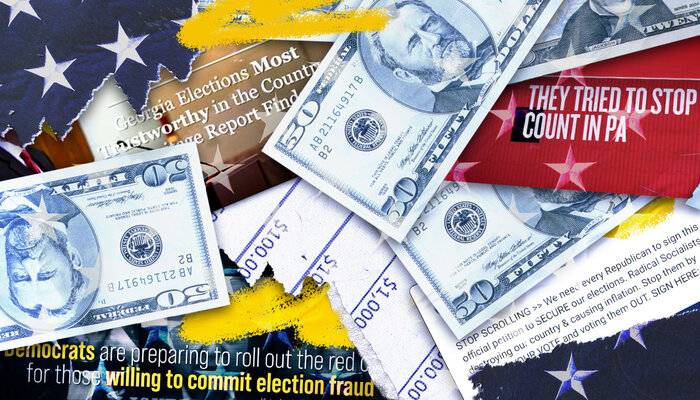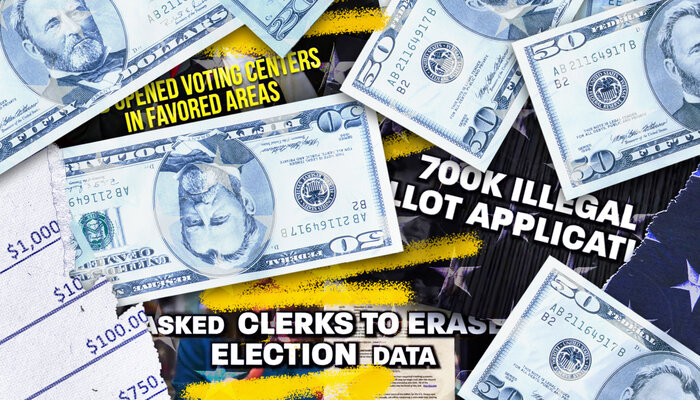Across the country, races are well underway for offices like state secretary of state that will play key roles in running the 2024 elections. This year, these races are attracting far more attention than in recent memory. Part of the reason for the increasing visibility of election officials is the spread of the Big Lie that election fraud “stole” the 2020 race from President Trump. In state after state, campaigns are focused on election denial as a central issue.
In this series, the Brennan Center examines the finances and political messages in contests that are important to the future of election administration. Throughout 2022, we are taking a regular look at relevant contests in battleground states that had the closest results in the 2020 presidential election. As candidates file disclosure forms and information becomes available, we will examine questions such as how much money is raised, who the biggest donors are, how much candidates rely on small donors, and how much outside spenders like super PACs and dark money groups spend.
Since our last report in February, nominees who will stand in the general election have been decided in four of the states we’re following, teeing up election denial as an issue in key contests.
In Pennsylvania, the winner of the GOP primary was State Sen. Doug Mastriano, who convened public hearings about claims of widespread election fraud, talks about the power to “decertify” voting machines, and recently held an event with MyPillow CEO Mike Lindell — an active spreader of false conspiracy theories — where attendees were asked to sign a petition to decertify the result of the 2020 election. In November’s open-seat general election, he will face Pennsylvania Attorney General Josh Shapiro (D), who has framed his campaign as opposing “people who tried to overturn the last election.” As Mastriano has emphasized, the governor appoints the secretary of the commonwealth, who oversees Pennsylvania elections, meaning the voters’ choice in this contest could have profound implications for the administration of the 2024 elections.
And Pennsylvania is far from the only state where it is possible an election denier will end up playing a key role in election administration in 2024. In its convention this month, the Minnesota GOP’s endorsed gubernatorial candidate Scott Jensen, who said the “election process was bastardized” and implied that Secretary of State Steve Simon (D) could go to jail for the way he ran the last election. The party also endorsed secretary of state candidate Kim Crockett, whose campaign showed a video to the convention crowd that depicted Simon controlled by puppet strings in the hands of billionaire philanthropist George Soros with the caption, “Let’s wreck elections forever and ever.”
The Michigan Republican Party Convention nominated Kristina Karamo, who said of alleged voter fraud that there is “massive corruption” and “a massive coverup.” Karamo will challenge Secretary of State Jocelyn Benson (D), who alleged that “election-deniers . . . want to take over statewide offices so they can potentially be in a position to block or undo or fail to certify election results.”
Texas Gov. Greg Abbott (R) decisively won his primary in March, defeating several challengers who espoused election denial claims. In Travis County, Texas, Dyana Limon-Mercado, who said, “Republicans spent 2021 trying to rig our elections in their favor,” won the Democratic primary. She will face Susan Haynes, whose website says “our elections have been manipulated for quite some time” and ran unopposed in the Republican primary. Also in Texas, Hood County Clerk Katie Lang (R) defeated a primary challenge from Michelle Carew, who said she ran because of partisan attempts “to control how elections are run.”
The next primaries are Georgia’s on May 24 and Nevada’s on June 14. Arizona, Florida, Michigan (gubernatorial), Minnesota, and Wisconsin have primaries in August, and New Hampshire in September.














